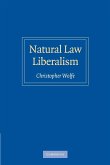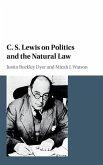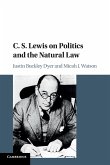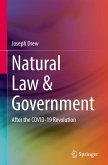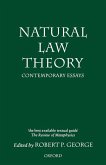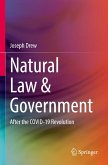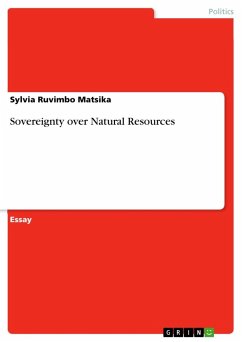Argues that liberal political philosophy and natural law theory are not contradictory but mutually reinforcing.
Political philosophy and natural law theory are not contradictory, but - properly understood - mutually reinforcing. Contemporary liberalism (as represented by Rawls, Guttman and Thompson, Dworkin, Raz, and Macedo) rejects natural law and seeks to diminish its historical contribution to the liberal political tradition, but it is only one, defective variant of liberalism. A careful analysis of the history of liberalism, identifying its core principles, and a similar examination of classical natural law theory (as represented by Thomas Aquinas and his intellectual descendants), show that a natural law liberalism is possible and desirable. Natural law theory embraces the key principles of liberalism, and it also provides balance in resisting some of its problematic tendencies. Natural law liberalism is the soundest basis for American public philosophy, and it is a potentially more attractive and persuasive form of liberalism for nations that have tended to resist it.
Table of contents:
Part I. Contemporary Liberalism: 1. Contemporary liberal exclusionism I: John Rawls's antiperfectionist liberalism; 2. Contemporary liberal exclusionism II: Rawls, Macedo, and 'neutral' liberal public reason; 3. Contemporary liberal exclusionism III: Gutmann and Thompson on 'reciprocity'; 4. Contemporary liberalism and autonomy I: Ronald Dworkin on paternalism; 5. Contemporary liberalism and autonomy II: Joseph Raz on trust and citizenship; 6. 'Offensive liberalism': Macedo and 'liberal education'; Part II. Liberalism and Natural Law: 7. Understanding liberalism: a broader vision; 8. Understanding natural law; 9. Liberalism and natural law; 10. 'Cashing out' natural law liberalism: the case of religious liberty; 11. A natural law public philosophy.
Hinweis: Dieser Artikel kann nur an eine deutsche Lieferadresse ausgeliefert werden.
Political philosophy and natural law theory are not contradictory, but - properly understood - mutually reinforcing. Contemporary liberalism (as represented by Rawls, Guttman and Thompson, Dworkin, Raz, and Macedo) rejects natural law and seeks to diminish its historical contribution to the liberal political tradition, but it is only one, defective variant of liberalism. A careful analysis of the history of liberalism, identifying its core principles, and a similar examination of classical natural law theory (as represented by Thomas Aquinas and his intellectual descendants), show that a natural law liberalism is possible and desirable. Natural law theory embraces the key principles of liberalism, and it also provides balance in resisting some of its problematic tendencies. Natural law liberalism is the soundest basis for American public philosophy, and it is a potentially more attractive and persuasive form of liberalism for nations that have tended to resist it.
Table of contents:
Part I. Contemporary Liberalism: 1. Contemporary liberal exclusionism I: John Rawls's antiperfectionist liberalism; 2. Contemporary liberal exclusionism II: Rawls, Macedo, and 'neutral' liberal public reason; 3. Contemporary liberal exclusionism III: Gutmann and Thompson on 'reciprocity'; 4. Contemporary liberalism and autonomy I: Ronald Dworkin on paternalism; 5. Contemporary liberalism and autonomy II: Joseph Raz on trust and citizenship; 6. 'Offensive liberalism': Macedo and 'liberal education'; Part II. Liberalism and Natural Law: 7. Understanding liberalism: a broader vision; 8. Understanding natural law; 9. Liberalism and natural law; 10. 'Cashing out' natural law liberalism: the case of religious liberty; 11. A natural law public philosophy.
Hinweis: Dieser Artikel kann nur an eine deutsche Lieferadresse ausgeliefert werden.


